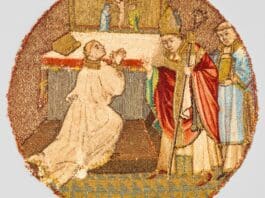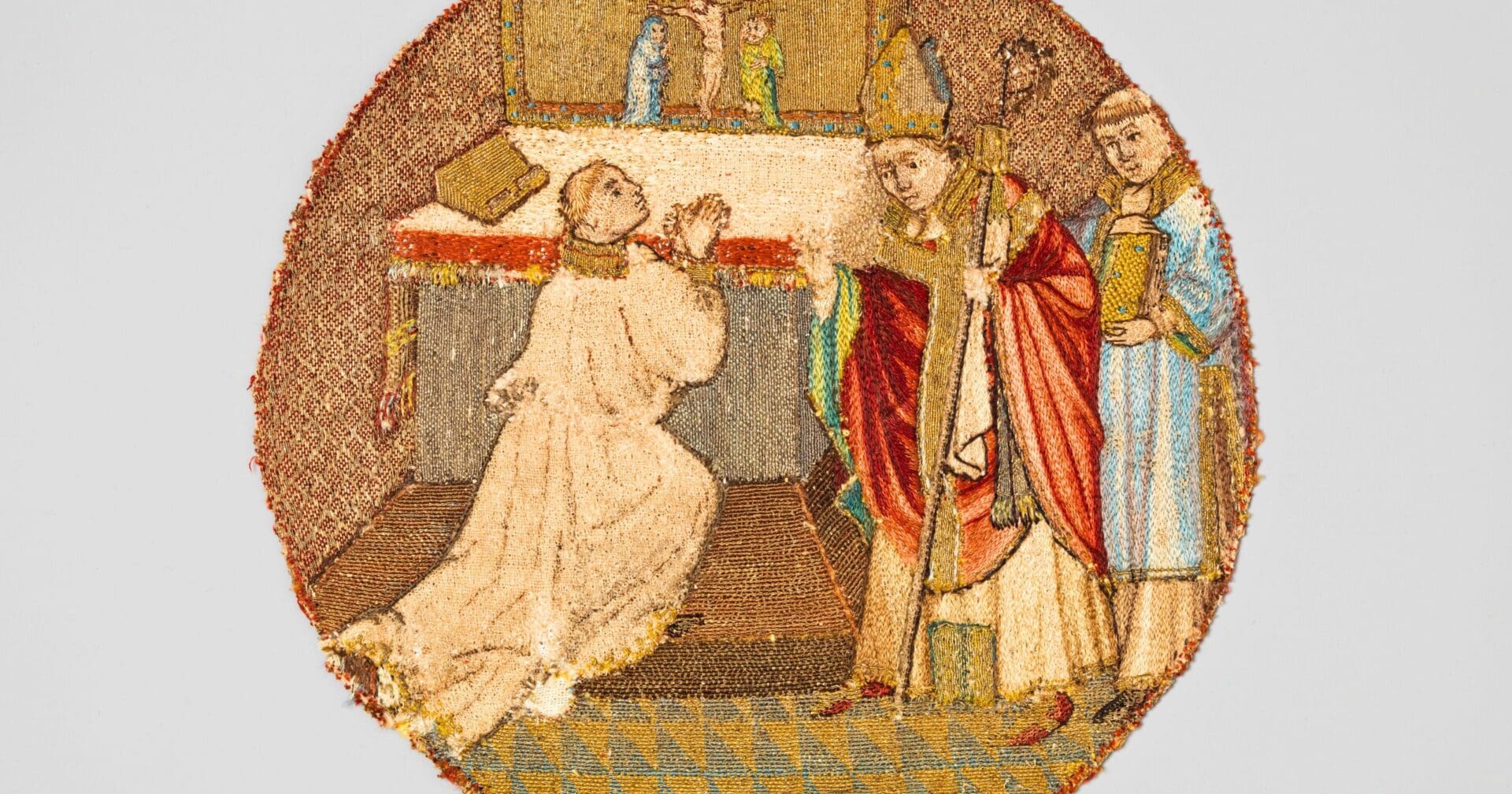
Born in the early fourth century in Poitiers, a city with a notable history dating back to the third century, Hilary emerged from a noble and pagan family. His initial education encompassed a broad spectrum of secular knowledge, but a transformative engagement with Holy Scripture led him to renounce his family’s pagan beliefs and embrace Christianity through baptism.
Hilary’s profound learning and fervent commitment to his newfound faith soon captured the attention of the Christian community in Poitiers. Around 350 A.D., he was appointed to lead this body of faithful, a position previously held by lesser-known bishops. His notability primarily stems from his vigorous opposition to prevailing heresies of the time, particularly Arianism, a doctrine that was causing deep divisions within the Church and had begun to find a foothold in Gaul.
Arianism, which made significant inroads in various regions, posed a grave threat to orthodox Christian beliefs. One of its prominent proponents, Saturninus, Bishop of Arles, convened a council in Beziers in 356, intending to vindicate his beliefs. Hilary, staunch in his defense of orthodoxy, boldly confronted the council, predominantly Arian, only to be exiled to Phrygia by Emperor Constantius, a known patron of Arianism.
Undeterred by exile, Hilary continued his scholarly work, completing several writings and crafting a treatise on synods. He scrutinized the faith declarations made in the Councils of Ancyra, Antioch, and Sirmium, and, despite condemning their Arian substance, he argued for a nuanced understanding of heretical and orthodox positions, suggesting that discrepancies often lay more in terminology than in doctrine. This stance drew criticism from some, including Lucifer, Bishop of Cagliari.
In 359, Hilary attended the synod in Seleucia, invited due to his scholarly repute. There, he clarified the positions of the Gallic bishops and participated in heated debates between Semi-Arians and Anomoeans. Following the inconclusive synod, he traveled to Constantinople to continue his fight against heresy. Despite his efforts to mediate between Semi-Arians and Western bishops, the Anomoeans, supported by the emperor, succeeded in having Hilary sent back to Gaul.
Hilary’s return to Poitiers in 361 was triumphant. He was warmly received by his congregation and fellow bishops, including his former disciple, Martin of Tours. His victory against Arianism was further underscored by the subsequent deposition of Saturninus, the Arian Bishop of Arles. However, memories of his attempted reconciliation in Italy lingered, leading him to seek support from the Bishop of Vercelli in 364. He later confronted Auxentius, the Arian bishop of Milan, only to be expelled by Emperor Valentinian, an Auxentius supporter.
Hilary spent his final years in Poitiers, contributing significantly to Christian literature. His writings, notably compiled in Dom Constant’s edition, reflect his theological acumen and unwavering dedication to orthodoxy. Celebrated on 14 January by the Latin Church and honored as a Doctor of the Universal Church by Pius IX, Hilary’s legacy is a testament to his enduring influence in the Christian faith. His relics, though claimed by the Church of Puy and associated with other locations, were allegedly destroyed by Protestants in 1572, adding a poignant note to his historical and spiritual journey.
Photo credit: Public Domain via Wikimedia Commons
The post Saint Hilary of Poiters appeared first on uCatholic.
Daily Reading
Tuesday of the First Week in Ordinary Time
Reading I Hebrews 2:5-12 It was not to angels that God subjected the world to come, of which we are speaking. Instead, someone has testified somewhere: What is man…
Daily Meditation
Granting God Complete Authority
Click here for daily readings Who or what has authority over your life? Is it your job, your schedule, maybe the demands of parenting? Is it something more subtle such…




